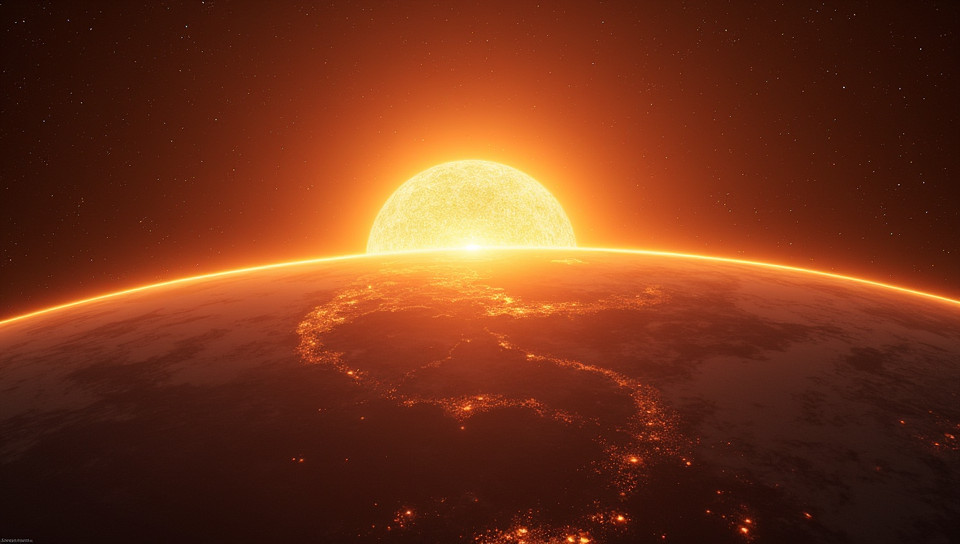More direct sunlight reaches the planet's surface in summer 41%

The Sunny Truth: Why More Direct Sunlight Reaches Our Planet's Surface in Summer
As we step out into the warm embrace of summer, it's hard to ignore the feeling of the sun's rays dancing across our skin. But have you ever stopped to think about why we feel like we're getting more direct sunlight during these long, lazy days? The answer lies in a combination of Earth's tilted axis and its distance from the sun.
Why Does This Happen?
During the summer months, the Northern Hemisphere is tilted towards the sun, causing it to shine directly on our planet. This means that more solar radiation reaches the surface, resulting in warmer temperatures and longer days. In contrast, during winter, the hemisphere is tilted away from the sun, leading to less direct sunlight and colder conditions.
The Science Behind It
- The Earth's axis is tilted at an angle of approximately 23.5 degrees.
- As a result, the amount of solar radiation that reaches the surface varies throughout the year.
- During summer, the sun appears higher in the sky, resulting in more direct sunlight.
- Conversely, during winter, the sun appears lower in the sky, resulting in less direct sunlight.
The Impact on Our Daily Lives
The increased direct sunlight during summer has a significant impact on our daily lives. From longer days to warmer temperatures, it's no wonder that many of us feel more energized and enthusiastic about outdoor activities during these months. Whether it's hiking, swimming, or simply enjoying a picnic in the park, the sun's rays are an integral part of our summer experiences.
Conclusion
The next time you step out into the sunshine, remember the science behind why you're feeling so warm and fuzzy inside. The tilted axis of our planet and its distance from the sun combine to create the perfect conditions for direct sunlight to reach our surface during the summer months. So go ahead, soak up those rays, and appreciate the simple joys of a sunny day.
- Created by: Andriy Savchenko
- Created at: Oct. 13, 2024, 3:54 a.m.
- ID: 12232









